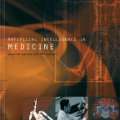Search systems are increasingly used for gaining knowledge through accessing relevant resources from a vast volume of content. However, search systems provide only limited support to users in knowledge acquisition contexts. Specifically, they do not fully consider the knowledge gap which we define as the gap existing between what the user knows and what the user intends to learn. The effects of considering the knowledge gap for knowledge acquisition tasks remain largely unexplored in search systems. We propose to model and incorporate the knowledge gap into search algorithms. We plan to explore to what extent the incorporation of the knowledge gap leads to an improvement in the performance of search systems in knowledge acquisition tasks. Furthermore, we aim to investigate and design a metric for the evaluation of the search systems' performance in the context of knowledge acquisition tasks.
翻译:搜索系统越来越多地通过从大量内容获取相关资源来获取知识;然而,搜索系统在获取知识方面仅向用户提供有限的支持;具体地说,这些系统没有充分考虑到知识差距,而我们把知识差距界定为用户所知道的和用户打算学习的之间的差距;在搜索系统中,考虑知识差距对获取知识任务的影响在很大程度上仍未得到探讨;我们提议将知识差距建模,并将知识差距纳入搜索算法;我们计划探讨知识差距的纳入在多大程度上导致搜索系统在获取知识任务中的绩效的改善;此外,我们力求调查并设计一个衡量标准,用于评估搜索系统在获取知识任务方面的绩效。




